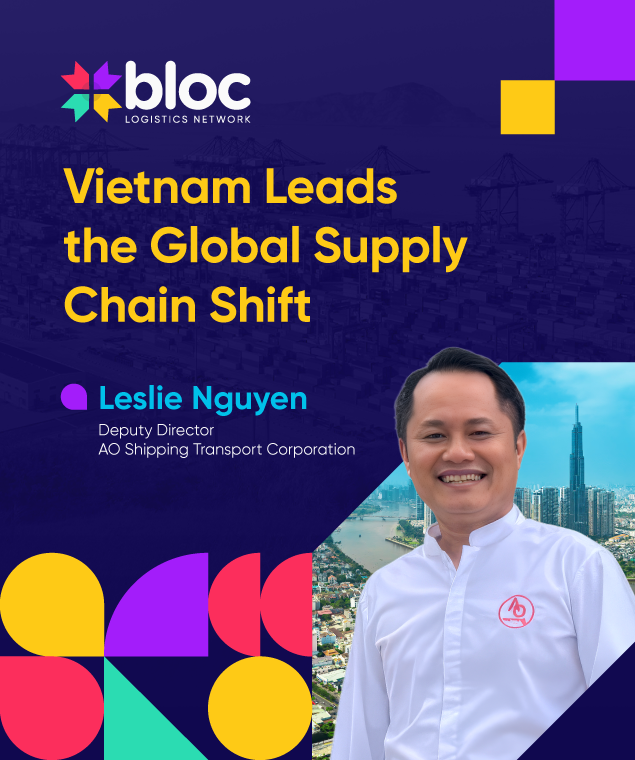By Ahsanullah Momen, CEO & Deputy Managing Director, Brisk Logistics International Ltd
Bangladesh is a country in motion. With a GDP that has consistently outpaced many of its regional and global peers, it has become a magnet for international trade and investment. Its powerhouse manufacturing sector, led by the formidable Ready-Made Garment (RMG) industry, has made it an essential hub for global supply chains. However, like any rapidly developing economy, the landscape is one of dynamic contrasts. For every significant opportunity, there is a corresponding complexity to navigate.
Successfully operating in the Bangladeshi market requires more than just a shipping schedule and a carrier; it demands a nuanced understanding of the currents that shape its commercial environment. It’s a market that richly rewards the prepared but can quickly frustrate the uninitiated.

To get a true on-the-ground perspective, we spoke with Momen, a seasoned logistics professional from Brisk Logistics International Ltd. in Dhaka. He provides a candid look at the realities of moving freight in one of Asia’s most vibrant economies.
“The story of logistics in Bangladesh is a story of duality,” Momen begins. “There is immense energy and opportunity here—a growing consumer market, new industries, incredible infrastructure projects. But this growth also creates friction points: complex regulations, traffic, and a blend of digital and traditional processes. The secret isn’t to find a path with no obstacles, but to have a guide who knows the way around them.”
Here, Momen helps us break down the top challenges and opportunities that define freight forwarding in Bangladesh today.
The Challenges: Navigating the Complexities of a High-Growth Market
Every logistics manager knows that unforeseen hurdles can derail a shipment. In Bangladesh, these challenges are predictable and, with the right expertise, manageable.
1. Customs and Regulatory Intricacy
The Bangladeshi customs system is sophisticated and constantly evolving to meet international standards and national priorities. While this is a positive sign of a maturing economy, it creates a complex environment for importers and exporters. Issues with HS code classification, valuation disputes, and precise documentation are common pitfalls. A small error on a bill of entry can lead to significant delays, demurrage charges, and inspections.
“In Bangladesh, the customs code isn’t just a guide; it’s a living document that requires constant study,” Momen cautions. “A tariff or regulation can be updated with very little notice. This is why having a dedicated team that lives and breathes these regulations is critical. It’s the difference between a shipment clearing in hours versus being stuck for weeks. Our direct lines of communication with customs authorities allow us to clarify issues and pre-empt problems before they escalate.”
2. Inland Logistics and Infrastructure Bottlenecks
While the country is investing heavily in mega-projects, the existing infrastructure still feels the strain of a booming economy. Port congestion at Chittagong, the nation’s primary seaport, can create backlogs. Once cargo is cleared, the “last mile” (or often, the last hundred miles) presents its own test. Navigating the dense traffic of major cities like Dhaka and Chittagong requires meticulous planning and timing.
“The journey from the port to the factory isn’t a straight line on a map,” Momen explains. “It’s a daily puzzle of traffic patterns, road conditions, local holidays, and transport availability. Our real value is in solving that puzzle every single day for our clients. We know which routes to take at what time of day and have a network of reliable truckers who can get the job done. This isn’t something you can manage from a desk thousands of miles away.”
3. The Pace of Digitalization
The “Digital Bangladesh” initiative is a government-led push to modernize the economy, and it has made great strides. Many port and customs processes are now online. However, the adoption of technology is not yet universal across the entire supply chain. A significant number of processes still rely on physical paperwork, manual data entry, and face-to-face interactions. This creates a hybrid system where international partners’ fully digital platforms must interface with on-the-ground analog realities.
“We position ourselves as the bridge between two worlds,” says Momen. “Our clients benefit from modern, digital tools like real-time tracking and online documentation. But we are also the ones who ensure the physical paperwork is stamped, signed, and delivered by hand when required. We embrace technology, but we know it must be backed by a person who can physically check on the cargo and make a phone call when a digital-first system hits a real-world wall.”
The Opportunities: Tapping into a Vibrant Economic Powerhouse
While the challenges are real, the opportunities in Bangladesh are far more compelling. For businesses willing to navigate the complexities, the rewards are substantial.
1. The Burgeoning Domestic Consumer Market
For decades, Bangladesh was viewed primarily as an export-driven economy. That narrative is changing rapidly. With a population of over 170 million and a fast-growing middle class, the domestic market is exploding. This has created a massive demand for imported goods, from consumer electronics and automotive parts to food products and luxury items.
“For years, the world sent raw materials here and we sent back finished garments. Now, the world is sending its finished products here for our own people to buy,” Momen notes with enthusiasm. “This import market is growing exponentially, and it requires a completely different logistics mindset focused on distribution, warehousing, and final-mile delivery. It represents a whole new frontier for international brands, and we are helping them build the supply chains to reach this new customer base.”
2. Economic Diversification and New Industrial Growth
While the RMG sector remains the king, the Bangladeshi economy is actively diversifying. The pharmaceutical industry is now a major player, exporting high-quality medicines globally. This sector demands specialized logistics, including temperature-controlled transport (cold chain) and stringent handling protocols. Other growing sectors include leather goods, jute products, shipbuilding, and light electronics assembly.
“We are handling more pharmaceutical shipments, temperature-sensitive cargo, and high-value electronics than ever before,” Momen reports. “This diversification is exciting because it challenges us to continuously upgrade our capabilities in areas like cold chain logistics and high-security transport. It proves that our workforce and logistics infrastructure are capable of meeting the highest international standards for a wide variety of products.”
3. Strategic Geographic Positioning and the Infrastructure Boom
Perhaps the greatest long-term opportunity lies in Bangladesh’s geography, which is finally being unlocked by transformative infrastructure. Projects like the Matarbari Deep Sea Port will allow the world’s largest vessels to call on Bangladesh directly, reducing shipping times and costs. The magnificent Padma Bridge has already revolutionized inland connectivity.
This new infrastructure doesn’t just benefit Bangladesh; it positions the country as a natural, cost-effective gateway for its landlocked neighbors, including Nepal, Bhutan, and the northeastern states of India. Transshipping goods through Bangladesh is becoming an increasingly viable and attractive option.
“With the new infrastructure, we are no longer at the end of the line; we are becoming a crossroad,” Momen states confidently. “The potential for Bangladesh to serve as a transshipment hub for our neighbors is one of the most significant opportunities of the next decade. We are moving from being a national logistics provider to a regional one.”
The Verdict: The Partner is the Fulcrum
The logistics landscape in Bangladesh is a perfect illustration of the adage, “with high risk comes high reward.” The challenges of customs, infrastructure, and bureaucracy are tangible. But the opportunities offered by a massive consumer market, a diversifying industrial base, and strategic regional positioning are immense.
Success in this market hinges on a single, critical factor: the quality of your local partner.
A knowledgeable freight forwarder like Brisk Logistics International Ltd. acts as the fulcrum on which challenge and opportunity are balanced. They don’t just move cargo; they mitigate risk, provide crucial intelligence, and build the resilient supply chains that allow businesses to confidently seize the incredible opportunities on offer.
“Success here isn’t about hoping challenges don’t appear; it’s about having a partner who has already anticipated and solved them,” Momen concludes. “We invite businesses to see the immense potential in Bangladesh. We, as a proud member of the Bloc Logistics Network, are here to build the bridge that connects their global ambitions to the reality of this dynamic and rewarding market.”

Article by Ahsanullah Momen
CEO & Deputy Managing Director,
Brisk Logistics International Ltd, a member of Bloc Logistics Network
Brisk Logistics International Ltd is a trusted freight forwarder based in Bangladesh, known for tailored solutions, competitive rates, and deep industry expertise. With a strong global network and a customer-first mindset, Brisk specializes in garments and apparel exports, ocean and air freight, project cargo, and supply chain management. Their professional team ensures reliable, time-bound service that delivers real value across borders and industries.
Bloc Logistics Network is a global platform that connects logistics professionals to share opportunities and collaborate without barriers. Bloc aims to level the playing field by creating an accessible, supportive environment where professionalism and collaboration drive real results. It serves as an ecosystem designed for mutual advancement, ensuring growth, efficiency, and success across the logistics industry.





